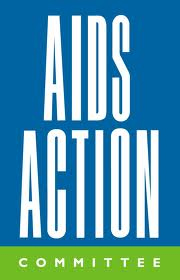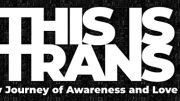 BOSTON, Massachusetts—In the wake of declining state and federal funding to combat HIV/AIDS and viral hepatitis, people living with HIV and AIDS, those living with viral hepatitis, and family members will join advocates and political leaders at the State House on Thursday, January 24 to lobby elected officials for increased funding for HIV and viral hepatitis services, outreach, and prevention.
BOSTON, Massachusetts—In the wake of declining state and federal funding to combat HIV/AIDS and viral hepatitis, people living with HIV and AIDS, those living with viral hepatitis, and family members will join advocates and political leaders at the State House on Thursday, January 24 to lobby elected officials for increased funding for HIV and viral hepatitis services, outreach, and prevention.
The lobbying effort will begin at 10 a.m. at the Grand Staircase of the State House.
“We can’t keep doing more with less. The numbers of people living with HIV and AIDS continue to increase each year in the Commonwealth, as do those living with viral hepatitis. Meanwhile, the number of those living with both chronic diseases, and thus in need of even more sophisticated health care and support services, is significant. The HIV/AIDS line item not only funds education, outreach, prevention, and other services for people living with HIV/AIDS, but also for those living with viral hepatitis. Level funding this line item will not get the job done. We need the governor and lawmakers to increase the HIV/AIDS and viral hepatitis line item by $4 million,” said Rebecca Haag, President & CEO of AIDS Action Committee of Massachusetts. “The state’s past investment in these services has paid off. Since 1999, we have reduced new diagnoses of HIV by 53 percent, which has spared nearly 6,000 from becoming infected with HIV and will save the state more than $2 billion in health care costs. We need a similar sustained and focused effort at combatting viral hepatitis, which has been called a ‘silent epidemic’ given the tens of thousands of people who are living with hepatitis but do not know it.”
Facts About HIV/AIDS
- Between FY 2000 and FY 2013, the budget for HIV/AIDS has decreased 38% from $51.7 million to $32.1 million.
- Between 2000 and 2010 (the last year for which statistics are available), the number of people living HIV/AIDS in Massachusetts increased 40%, placing substantial demands on existing prevention and treatment programs.
- In 2010, just over half (51%)of all HIV infection diagnoses in the state occurred among men who reported male-to-male sex as the way they were exposed to HIV; that is up from 44% of men newly diagnosed with HIV reporting male-to-male sex as their exposure mode in 2001.
- 11% of HIV infection diagnoses in MA from 2008 to 2010 were of adolescents and young adults age 13-24.
- Blacks make up only 6% of the state’s population, but they comprise 29% of those living with HIV/AIDS in MA.
- Hispanics make up only 8% of the state’s population, but they comprise 25% of those living with HIV/AIDS in MA.
- As of 2011, male-to-male sex and injection drug use were the leading reported exposure modes for HIV infection for those living with HIV/AIDS in MA accounting for 36% and 21% of all exposures, respectively.
Facts About Viral Hepatitis
- The HIV/AIDS line item also funds viral hepatitis services.
- Viral hepatitis causes inflammation of the liver which can lead to cirrhosis and increased risk of liver cancer.
- There are an estimated 100,000 people living with viral hepatitis in Massachusetts today with between 7,000 to 10,000 new diagnoses annually.
- Viral hepatitis is spread in the same manner as HIV, but is much more highly infectious and easily transmitted from one person to another.
- Between 2002 and 2009, the rate of infection among teens and young adults age 15-24 increased 74%, largely driven by the shared use of injection drug equipment.
About AIDS Action Committee of Massachusetts
AIDS Action Committee of Massachusetts is the state’s leading provider of prevention and wellness services for people vulnerable to HIV infection. It provides services to one in six people in Massachusetts living with an HIV diagnosis. These services include HIV counseling and testing; needle exchange; mental health counseling; housing assistance; and legal services. AIDS Action works to prevent new HIV infections, support those affected by HIV, and tackle the root causes of HIV/AIDS by educating the public and health professionals about HIV prevention and care; and advocating for fair and effective HIV/AIDS policy at the city, state, and federal levels. Founded in 1983, AIDS Action Committee of Massachusetts is New England’s first and largest AIDS service organization. Learn more at www.aac.org.
[From a News Release]







